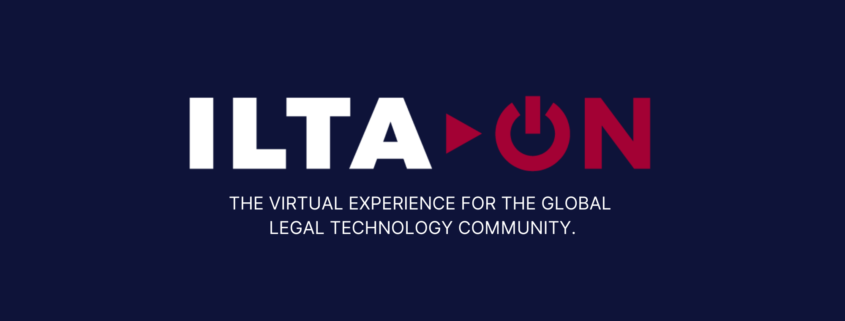ILTA>ON 2020: Six Predictions From Richard Punt’s Keynote

Among the highlights of today’s ILTA>ON sessions was the keynote address delivered by Richard Punt, managing director of Legal Strategy and Market Development for Thomson Reuters.
In his speech, After the Quake: Predictions for an Uncertain Legal Future, he explored the longer-term implications of the past few months for a legal market already in flux and offered six predictions on how COVID-19 will reshape demand.
Punt began by sizing up the pre-COVID law firm industry, noting it had been in good health with modest revenue growth. He also noted key changes affecting the industry, including how companies are more focused on legal spend with the rise of legal operations, that firms are achieving their results through a more robust focus on performance, and the growth of new delivery models – both resourcing and technology.
“I would argue that those developments mean that the industry is much better equipped to drive change in the next decade,” Punt said.
He said the impact of COVID-19 on law firm performance, so far, appears to be limited. “But when combined with the underlying changes of the last decade, COVID-19 will represent a discontinuity for the legal industry with profound implications. The firms and other providers who are successful in the next decade will be those who recognize this discontinuity and respond to the opportunities it presents,” Punt said.
He shared six predictions to help firms understand what’s happening and how to best take action:
- Demand for legal services will be fundamentally reshaped.
- General counsel will focus on business outcomes, not legal inputs.
- The practice of law will become codified.
- Platforms and data markets will drive transactions.
- Justice will shift decisively online as COVID-19 putting virtual courts in the spotlight.
- A new social contract with legal talent needs to be developed.
“What I see as the most important impact of COVID-19 on law firms is their relationship with talent,” Punt said. “The law firm model has relied heavily on the ability to cause a cadre of incredibly smart people to make significant personal sacrifices and to conform to a set of written and unwritten rules about how things are done. While no doubt there will be some firms – and some lawyers – who continue to work within that frame, now is the time for some enlightenment. Reframing the social contract with their people – both current and future – is the top priority for law firm leadership today.”
He added, “What has happened over the last few months is not just about the pace of change; it is going to drive a profound shift in its direction.”
He predicted many firms will react by being relieved to survive and return to business as usual, while some firms will respond to the market shift and accelerate their pace of change. He indicated only a few bold firms will recognize the discontinuity and reframe their strategy and direction.
Punt said the impact of the pandemic may not be felt until later in the year or into 2021, but he encouraged law firms to pivot now to better serve the companies that are likely to come out the strongest from the COVID-19 disruption.
“Your task now is to galvanize your firms to take the bold moves which this post-COVID future demands,” he concluded.
Watch Legal Current and follow @LegalCurrent on social for updates during ILTA>ON.